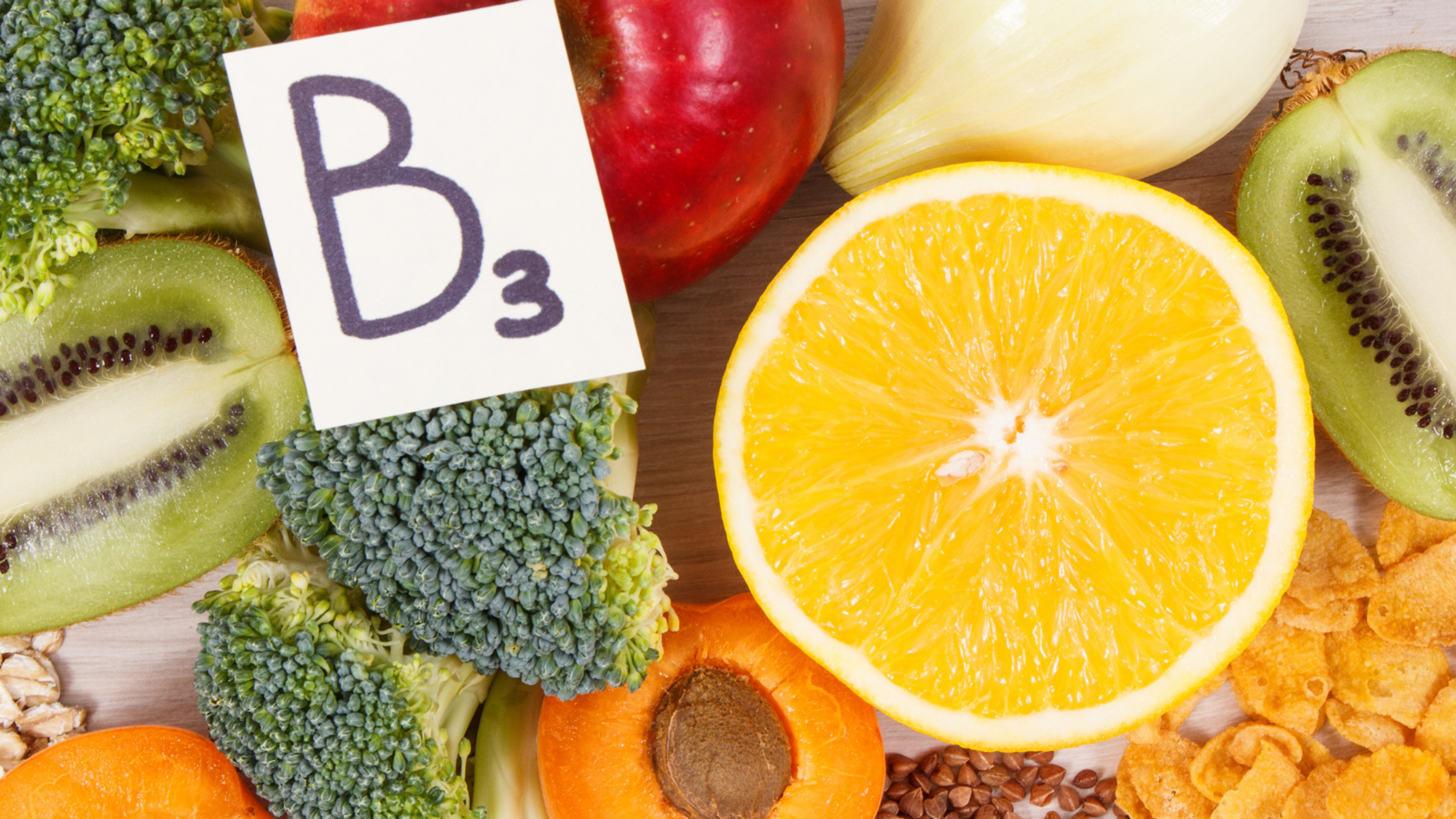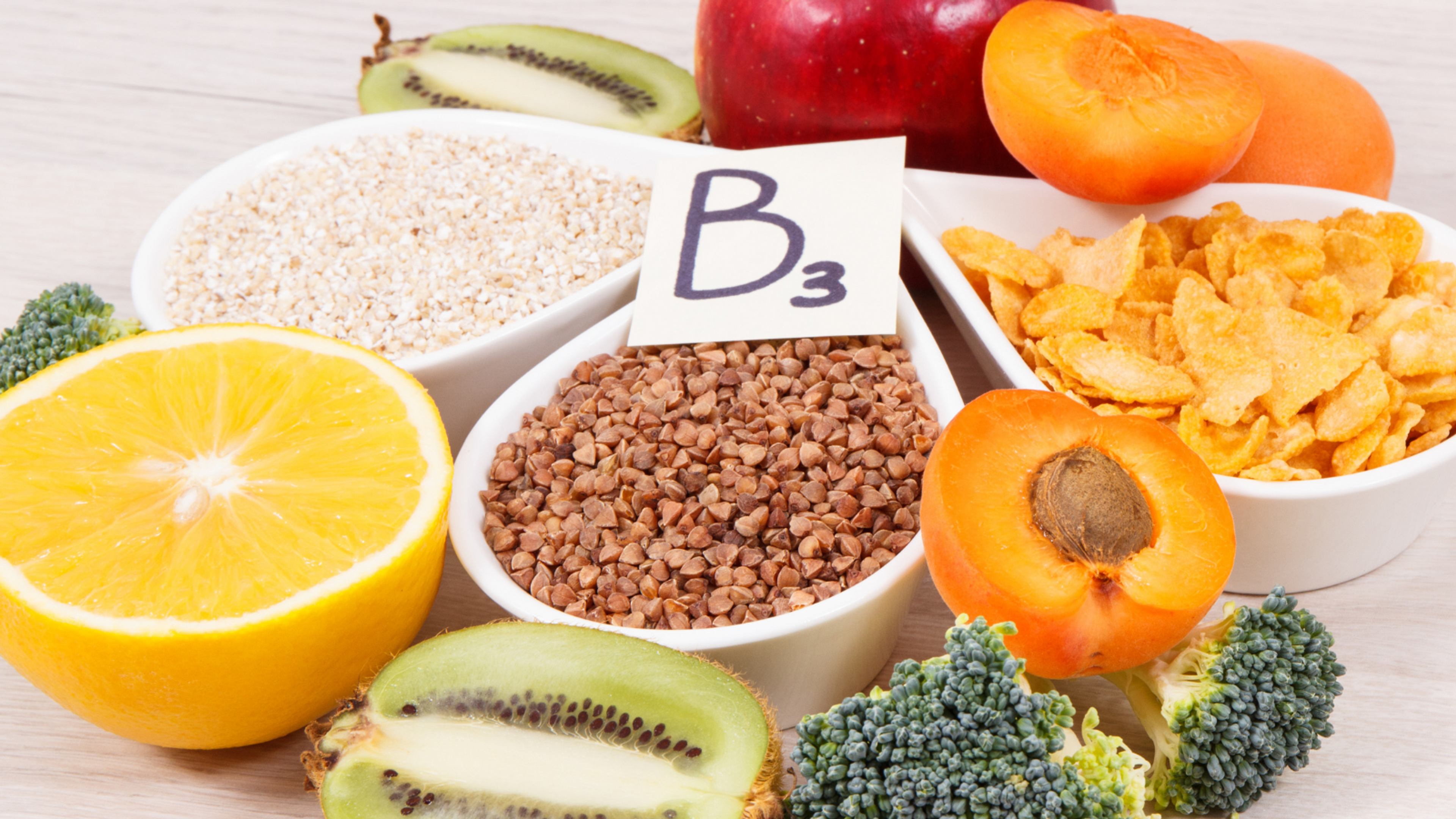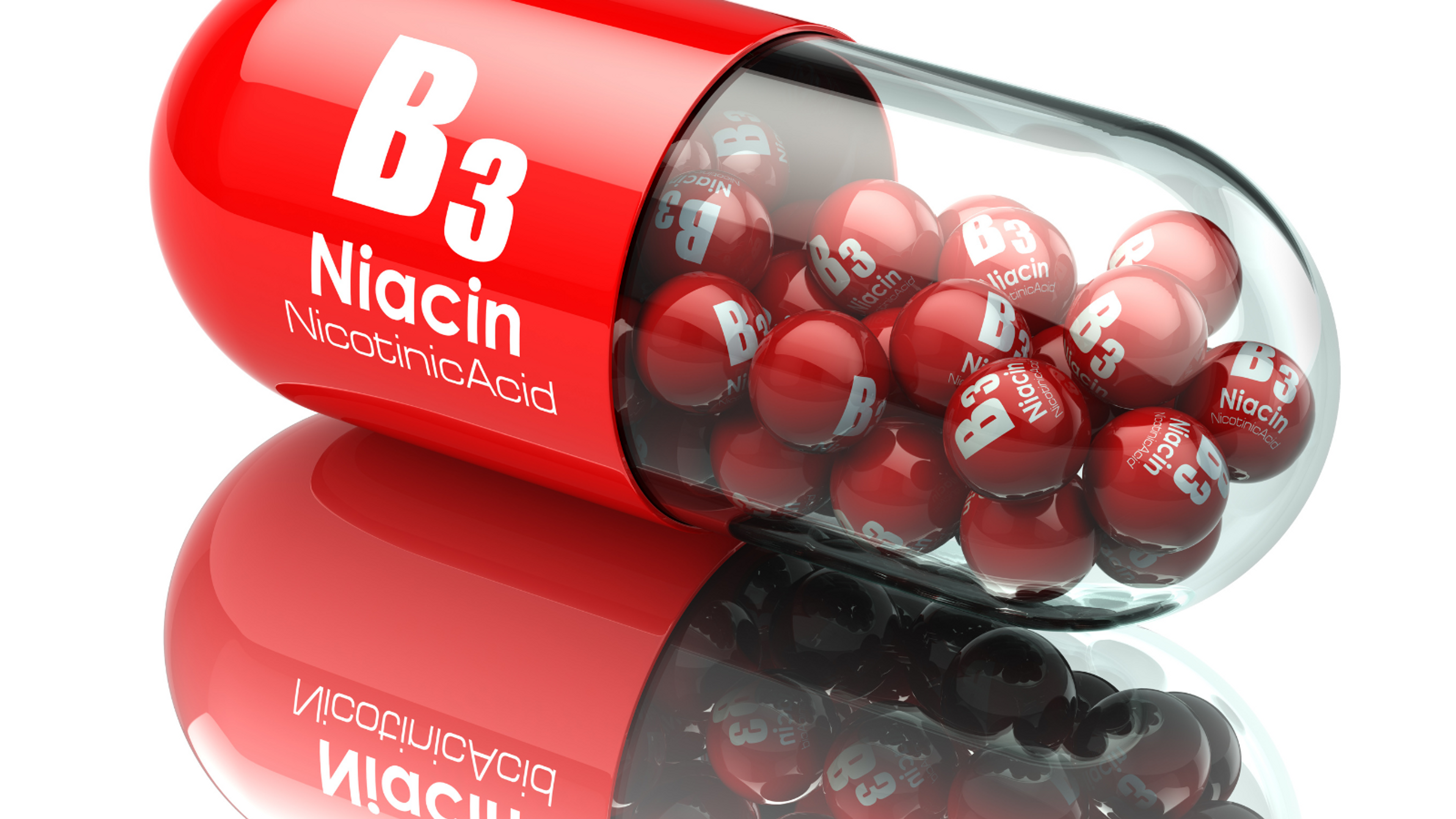Top 12 Vegan Sources Of Vitamin B3: A Comprehensive Guide

- Key Takeaways
- What is Niacin and Why Do We Need It?
- 12 Best Vegan Sources of Vitamin B3 (Niacin) and their Nutritional Profiles
- Niacin Supplements for Vegans
- Benefits of Niacin and Niacin Deficiency Symptoms
- Conclusion
- FAQs
Are you a vegan struggling to find suitable sources of Vitamin B3? According to USDA, niacin, also known as vitamin B3, is an essential nutrient that plays a vital role in our body's functions.
In this comprehensive guide, we've compiled the top 12 plant-based foods rich in Niacin for vegetarians and vegans alike. Let's journey together through nature's pantry and discover how these delicious foods can help maintain your health!
Key Takeaways
- Niacin, also known as vitamin B3, is an essential nutrient that plays a vital role in the body's functions.
- The daily recommended intake of niacin for adults is 14 to 16 mg per day, and it can easily be obtained from vegan sources such as whole grains, nuts and seeds, legumes, and nutritional yeast.
- Incorporating these vitamin B3-rich foods into a vegan diet helps maintain overall health and well-being by providing important nutrients like protein, fiber, iron, folate, and magnesium.
- It's important to consume the right amount of niacin as excessive consumption can lead to potential side effects. Regular monitoring of nutrient profiles and careful meal planning ensures optimal niacin intake without overdoing it.
What is Niacin and Why Do We Need It?
Niacin, also known as Vitamin B3, is a vital nutrient that plays a crucial role in the body's overall health and well-being.
Importance of Niacin in the body
Niacin, better known as vitamin B3, is vital for the body's normal functioning. It primarily aids in converting nutrients into energy which fuels the body's daily activities. This indispensable nutrient also supports the creation of cholesterol and fats, processes that are critical for maintaining good health.
Additionally, niacin plays a role in DNA repair, safeguarding against genetic anomalies that could lead to diseases. Apart from these functions, vitamin B3 acts as an antioxidant by protecting our bodies from oxidative damage caused by free radicals - particles notorious for advancing aging and various health issues such as heart disease and cancer.
Recommended daily intake
The daily recommended intake of Niacin (Vitamin B3) differs based on factors such as age, sex, and health conditions. The National Institutes of Health has outlined an average daily requirement for adults at 14 to 16 mg per day.
Pregnant women need slightly more niacin, with a recommended RDA of 18mg while breastfeeding women require around 17mg. It's important to note that consuming the right amount enhances metabolism and benefits nervous system function.
Ensuring your diet includes ample vegan sources of vitamin B3 is critical, especially since it’s a water-soluble vitamin that the body cannot store in large amounts. Therefore, regular replenishment through dietary intake is necessary.
Incorporating niacin-rich foods like whole grains, nuts and seeds, avocados in your daily diet can easily help you meet these recommendations. But excessive consumption should be avoided; high doses beyond 2000mg can lead to potential side effects including diarrhea or other digestive issues.
Fortunately, with careful meal planning and monitoring nutrient profiles of food choices — reaching optimal niacin intake from vegan foods without overdoing it is entirely feasible.
12 Best Vegan Sources of Vitamin B3 (Niacin) and their Nutritional Profiles

The 12 best vegan sources of Vitamin B3 (Niacin) include whole grains, nuts and seeds, legumes, nutritional yeast, avocado, green vegetables, sesame seeds, pumpkin seeds, spirulina, mushrooms, tomatoes and potatoes.
1. Whole Grains
Whole grains serve as an essential part of a balanced vegan diet due to their high niacin content. As one of the best plant-based sources of vitamin B3 (niacin), these unrefined grains like brown rice, barley, and wheat flour contribute significantly to daily nutritional requirements.
Per 100 grams serving, whole-grain wheat flour provides around 5.35 grams of niacin - making it a robust source for this nutrient in a plant-based diet. Not only does regular consumption aid in maintaining healthy skin and boosting brain function thanks to the niacin, but whole grains also come packed with other beneficial nutrients such as dietary fiber that supports digestive health.
Thus incorporating whole grains into your daily menu can pave the way for overall wellness in a vegan lifestyle.
2. Nuts and Seeds
Nuts and seeds are considered one of the best vegan sources of vitamin B3 (niacin). They are not only high in niacin content but also packed with other essential nutrients. For example, sesame seeds, pine nuts, almonds, and rye grain are all rich in niacin.
Nuts and seeds also provide protein and healthy fats, making them a nutritious addition to any diet. Additionally, they contain vitamins E and B6 as well as minerals like folate. Including a variety of nuts and seeds in your diet can help you meet your daily niacin requirements while enjoying their crunchy texture and delicious flavor.
3. Legumes
Legumes are an essential part of a vegan diet and one of the best sources of vitamin B3, also known as niacin. Foods like lentils, chickpeas, and beans are rich in niacin, providing an important nutrient for vegetarians and vegans.
Not only do legumes offer a good dose of niacin, but they also pack a punch when it comes to protein and fiber content. These nutritious foods also contain other vital nutrients like iron, folate, and magnesium.
By incorporating legumes into your meals, you can help prevent any deficiency in vitamin B3 while enjoying delicious plant-based dishes such as soups, stews, or salads. Plus, legumes are cost-effective and sustainable options for those looking to add more plant-based protein to their diets without sacrificing taste or nutrition.
4. Nutritional Yeast
Nutritional yeast is considered one of the best vegan sources of vitamin B3 (niacin). It is a deactivated form of yeast that has a savory, cheese-like flavor and is commonly used as a condiment or seasoning in vegan dishes.
Just two tablespoons of nutritional yeast can provide about 11 milligrams of niacin, which covers more than half the daily recommended intake for adults. In addition to being high in niacin, nutritional yeast is also rich in other B vitamins and minerals like folic acid.
This makes it a highly beneficial addition to the diet for vegetarians and vegans who may be at risk for deficiencies in these nutrients. So sprinkle some nutritional yeast on your favorite dishes to boost your vitamin B3 intake!
5. Avocado
Avocado is considered one of the top vegan sources of vitamin B3 (niacin). Not only does it provide a good amount of niacin, but it also offers other essential nutrients. Avocados are rich in monounsaturated fats, which are heart-healthy and can help lower cholesterol levels.
They are also high in vitamin E, a powerful antioxidant that supports healthy skin and immune function. Additionally, avocados contain potassium, an important nutrient for proper muscle function and regulating blood pressure.
Including avocado in your vegan diet not only adds a creamy and delicious element to meals but also provides you with beneficial vitamins and minerals.
6. Green Vegetables
Green vegetables, such as spinach and kale, are among the top vegan sources of vitamin B3 (niacin). These nutrient-packed veggies not only provide a good amount of niacin but also offer a host of other essential vitamins and minerals.
For example, just one cup of cooked spinach contains about 1.2 milligrams of niacin, which is approximately 7% of the recommended daily intake for adults. In addition to their high niacin content, green vegetables are rich in antioxidants and fiber that promote overall health and well-being.
So go ahead and add some vibrant greens to your plate for a nutritious boost!
7. Sesame Seeds
Sesame seeds are not just a tasty addition to your dishes, but they are also a great source of vitamin B3 (niacin). Just one tablespoon of sesame seeds contains about 0.43mg of niacin, which provides around 3% of the recommended daily intake for adults.
These tiny seeds pack quite a punch when it comes to nutrition! In addition to being high in niacin, sesame seeds are also rich in protein and contain omega-3 fats that are beneficial for overall health.
You can easily incorporate sesame seeds into your diet by sprinkling them on top of salads, stir-fries, or adding them to baked goods and smoothies. So next time you’re looking for a nutritious boost, consider turning to these small yet mighty sesame seeds!
8. Pumpkin Seeds
Pumpkin seeds are considered one of the best vegan sources of vitamin B3 (niacin). These small but mighty seeds pack a nutritional punch, providing not only niacin but also other important vitamins, minerals, and antioxidants.
Just 1 ounce of pumpkin seeds contains about 2 milligrams of niacin, which is about 10% of the recommended daily intake for adults. In addition to their high niacin content, pumpkin seeds also offer a good amount of magnesium and zinc, both essential minerals for overall health.
They can be enjoyed on their own as a snack or added to salads, trail mixes, or baked goods for an extra boost of nutrients. Incorporating pumpkin seeds into your diet is a delicious way to meet your daily niacin needs while enjoying their nutty flavor and satisfying crunch.
9. Spirulina
Spirulina is a nutrient-dense blue-green algae that serves as an excellent vegan source of vitamin B3, providing individuals with a significant amount of niacin in their diet.
10. Mushrooms
Mushrooms are not only a delicious addition to many dishes, but they also happen to be a great source of niacin for vegans. These fungi contain approximately 3.6 grams of niacin per 100 grams, making them an excellent choice for boosting your vitamin B3 intake.
What's more, mushrooms are low in calories, with just 22 calories per 100 grams, making them a nutritious and guilt-free option. Whether you prefer button mushrooms or the earthy flavor of shiitake mushrooms, incorporating these into your meals can help ensure you're meeting your daily requirements of this essential nutrient.
11. Tomatoes
Tomatoes are not only a delicious addition to meals but also provide a good source of vitamin B3 for vegans. These juicy fruits contain about 0.6 milligrams of niacin per medium-sized tomato, making them a convenient and accessible choice.
Tomatoes are also rich in antioxidants like lycopene, which has been linked to numerous health benefits including reducing the risk of certain cancers and promoting heart health. Including tomatoes in your vegan diet can help you meet your daily niacin requirements while enjoying their vibrant flavor and nutritional benefits.
12. Potatoes
Potatoes are a surprisingly good vegan source of vitamin B3 (niacin). Despite being widely known as a starchy vegetable, potatoes actually contain niacin, with the level varying depending on how they are cooked.
For example, one medium-sized potato can provide about 3 grams of niacin when baked or boiled with the skin intact. This makes potatoes an excellent addition to a plant-based diet for those looking to increase their intake of vitamin B3.
Niacin Supplements for Vegans
Learn about the different forms of niacin supplements, when to consider supplementation, and potential side effects. Discover how these supplements can help vegans meet their daily niacin requirements.

Overview of niacin supplements and their different forms (nicotinic acid, niacinamide)
Niacin supplements are available in different forms, mainly nicotinic acid and niacinamide. Nicotinic acid is the most common form found in supplements and fortified foods, while niacinamide is often used in skincare products due to its potential benefits for the skin.
Both forms can provide the body with niacin, but they may have slightly different effects.
Nicotinic acid has been shown to help lower cholesterol levels and improve circulation, making it a popular choice for those looking to support cardiovascular health. On the other hand, niacinamide is typically used more for its anti-inflammatory properties and potential benefits for conditions like acne or rosacea.
When to consider supplementation and proper dosage guidelines
Consider supplementation of niacin when:
- You are following a vegan diet and may have difficulty obtaining enough niacin from plant-based sources alone.
- You have been diagnosed with a niacin deficiency or are at risk for developing one.
- You have certain medical conditions that may increase your need for niacin, such as metabolic disorders or gastrointestinal disorders that affect nutrient absorption.
- Your healthcare provider determines that you need higher doses of niacin to address specific health concerns.
Potential side effects and interactions to be aware of
- Negative side effects such as skin flushing, stomach upset, and diarrhea often accompany niacin supplements, leading to poor compliance from patients.
- Excess intake of vitamin B3 (niacin) can cause skin flushing or pain, elevated blood sugar levels, and liver toxicity.
- There is a concern about the safety of taking high doses of niacin, such as 500mg per day.
- It is important to be cautious when combining niacin supplements with other medications or supplements, as there can be potential interactions.
- Niacin can interact with certain cholesterol-lowering medications, leading to an increased risk of muscle damage.
- Some individuals may experience allergic reactions to niacin supplements, including hives or difficulty breathing.
Start with lower doses and gradually increase under medical supervision to minimize the risk of side effects like flushing, itching, and gastrointestinal discomfort. It is important to follow the dosage recommendations provided by your healthcare provider or the instructions on the supplement packaging. Taking excessive amounts of niacin can be harmful.
It is always recommended to consult with a healthcare professional before starting any new supplementation regimen.
Benefits of Niacin and Niacin Deficiency Symptoms
Benefits of Niacin
Niacin, or vitamin B3, offers a range of benefits for our overall health and well-being. One major benefit is its role in energy production. Niacin helps convert the food we eat into energy by aiding in the breakdown of fats and proteins.
It also supports a healthy nervous system and DNA repair, promoting proper brain function and preventing cognitive decline. Additionally, niacin has been shown to have antioxidant effects, protecting our cells from damage caused by harmful free radicals.
Furthermore, niacin plays a crucial role in regulating cholesterol levels and can help lower LDL (bad) cholesterol while increasing HDL (good) cholesterol levels. This can have a positive impact on cardiovascular health and reduce the risk of heart disease.
Health risks associated with low niacin levels
Low levels of niacin in the body can lead to various health risks. One major risk is the development of pellagra, a condition characterized by symptoms such as mental confusion, dermatitis, diarrhea, and inflamed mucous membranes.
Pellagra can also cause glossitis (inflammation of the tongue) and alopecia (hair loss). Additionally, low niacin levels have been associated with an increased risk of cardiovascular disease due to its role in cholesterol metabolism and circulation.
It is important to ensure an adequate intake of niacin through dietary sources or supplements to maintain optimal health and prevent these potential risks.
Conclusion
In conclusion, incorporating vitamin B3-rich foods into a vegan diet is essential for ensuring an adequate intake of this important nutrient. With various plant-based options available, such as whole grains, nuts and seeds, legumes, and nutritional yeast, vegans can easily meet their niacin needs.
However, supplementation may be necessary in some cases to address any deficiencies or specific dietary requirements. By prioritizing these top vegan sources of vitamin B3, individuals can support their overall health and well-being while following a vegetarian lifestyle.
FAQs
1. What are some vegan sources of vitamin B3?
Some vegan sources of vitamin B3 include nutritional yeast, mushrooms, peanuts, sunflower seeds, and whole grains like brown rice and quinoa.
2. Can I get enough vitamin B3 from a vegetarian diet?
Yes, it is possible to get enough vitamin B3 from a vegetarian diet by incorporating foods rich in niacin such as legumes, nuts, seeds, and fortified plant-based products into your meals.
3. How much daily intake of vitamin B3 is recommended for vegans?
The recommended dietary allowance (RDA) for adults is 14-16 mg of niacin per day for men and 12-14 mg per day for women. However, individual needs may vary depending on factors such as age and health conditions.
4. Can taking supplements be an alternative to consuming natural food sources of vitamin B3?
While supplements can provide an additional source of vitamin B3, it is generally recommended to obtain nutrients through a well-balanced diet that includes natural food sources. Whole foods contain other beneficial components besides the specific nutrient being targeted. It's important to consult with a healthcare professional before starting any new supplement regimen.

